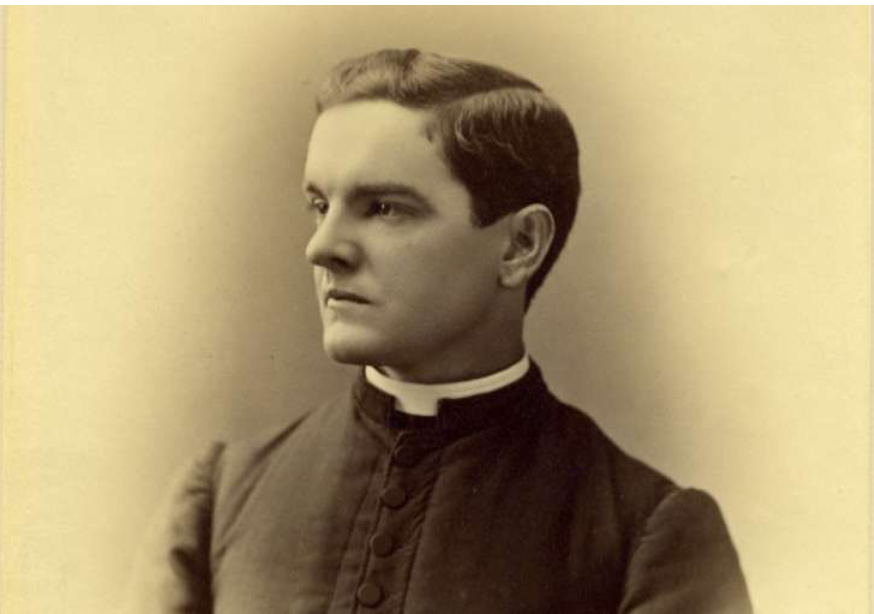October 27, 2020

Dear Members of the University Community,
When we established the Roadmap 20/21 taskforce earlier this year, we knew where we wanted to go. Our goal has always been to arrive at a point where we could reopen our campus and operate again at full capacity. How we were going to do that, and how long it was going to take, has taken some figuring out.
While we’re not there yet, we’ve made steady and substantial progress. It was the right decision to invite a smaller group of students to campus this fall. This allowed us to learn how to navigate the complexities of social distancing, testing, quarantines, sanitizing, and contact tracing. Our staff and faculty have responded with agility, creativity, and competence to a million and one issues that have arisen in connection with COVID-19. I’ve been impressed with the progress we’ve made and everything we have learned.
Last week we met with Mayor Muriel Bowser and members of her staff. One staffer remarked about the innovation our team demonstrated in resolving issues of social distancing in our residence halls. Mayor Bowser said that Catholic University has taken the most “aggressive” approach of any university in the District to offering its students a residential college experience. I think we can take great pride in her recognition of our efforts to bring our students back as much as is safely possible.
Spring: What We Know
We spoke with the Mayor about our plans for next spring. While not everything has been decided yet, we can share a few details.
We moved our start date for the spring semester from January 11 to January 25. All students will be asked to quarantine upon their return to the University, whether they live on or off campus. Some athletes will return early and observe their quarantine in conjunction with their training, and the Law School will start on January 4 with its first two weeks online.
We will make up for the delayed start by eliminating spring break. This will eliminate the need for another quarantine, because of travel, in the middle of the semester, which would be disruptive to in-person classes and residence life.
Our Easter break will be shorter than usual but we will still be closed on Good Friday.
By Thanksgiving we will have more detailed information on next semester’s academic offerings.
Moving Toward In-Person Classes
I am looking forward to getting back into the classroom. I always teach a Virtues class in the spring, and this year is no exception. It was unfortunate that last year’s class had to be moved online. Zoom conversations are simply not the same, no matter how awesome your webcam is.
I know many other professors are equally ready to go back to in-person classes. Because of the success we have had with our safety measures and with technology in classrooms already open to freshmen, we have now begun allowing several of our senior classes to meet in person.
This is a complicated process for a variety of reasons, but it’s good that we are taking these small steps. It will eventually lead us to being the vibrant campus we all want to see.
Continued success hinges on our vigilance in doing what we all know by now: washing our hands, keeping our distance, wearing masks. We must keep up this behavior, take care of each other, and remain especially alert to our neighbors in Brookland and elsewhere.
Public Comments Against DHS Rule
On Monday I sent on behalf of Catholic University public comments in opposition to a Department of Homeland Security proposal that would limit the time many international students are allowed to study in the United States. I urged DHS to withdraw it completely and immediately.
The letter argues that our “international students are an essential and vital component of our university community.” We have more than 450 such students enrolled this year; they comprise nearly 8% of our students. This is a 12% decline over the 2019-20 academic year. We attribute much of that decline to the “continuous imposition and threats of adverse changes in our immigration rules affecting international scholars.”
Our international students contribute in essential ways to the University. Last year, net tuition and fee revenue from international students represented 9.4% of our total net tuition and fee revenue.
Our international students also contribute to the intellectual vibrancy of our educational enterprise. One example is Venezuelan Javier Garcia, Ph.D., 2010, who now teaches at Caltech. He recently received the Early Career Award from The Laboratory Astrophysics Division of the American Astronomical Society for making significant contributions to his field within 10 years of receiving a Ph.D.
We would like to be able to continue to recruit and teach students like Javier, but the new proposed limits simply don’t reflect the reality of how long it takes to complete an academic program.
The letter continues, “Neither this country nor its universities can afford, nor should be required, to lose more international students. Other more open-minded and more open-hearted nations will benefit from the resultant availability of this talent pool resulting from this unforced error.
“On behalf of The Catholic University of America, I respectfully request that this Proposed Rule be withdrawn.”
A Priest for Our Time
 At the end of the month, Father Michael McGivney (1852-1890) will become the third US-born priest to be beatified, which is one step away from being a saint. Some of you might know Father McGivney as the founder of the Knights of Columbus, but most will recognize him as the namesake of McGivney Hall. We have a statue honoring him at the entrance of that hall.
At the end of the month, Father Michael McGivney (1852-1890) will become the third US-born priest to be beatified, which is one step away from being a saint. Some of you might know Father McGivney as the founder of the Knights of Columbus, but most will recognize him as the namesake of McGivney Hall. We have a statue honoring him at the entrance of that hall. As the son of Irish immigrants, McGivney knew the struggle families faced as they sought to establish themselves in this country. He was particularly moved to help widows and orphans; his own father died when he was studying to be a priest. He saw firsthand how difficult it was for his widowed mother to make ends meet. He left school for a time to help her.
When McGivney founded the Knights in 1882, it was primarily as a mutual aid organization. It grew later into a fraternal society, but remains to this day a preeminent Catholic charitable organization.
To know more about Father McGivney, I encourage you all to watch a special presentation on EWTN, produced in conjunction with our School of Theology and Religious Studies, called Fr. McGivney: A Priest for Our Time. We should all be proud that the Church has recognized the holiness of soon-to-be Blessed Michael McGivney.
Oct. 28, 10 pm ET | Oct. 30, 5 pm ET
Oct. 31, 2 pm ET | Nov. 1, 4:30 pm ET
Sincerely,
John Garvey
President
